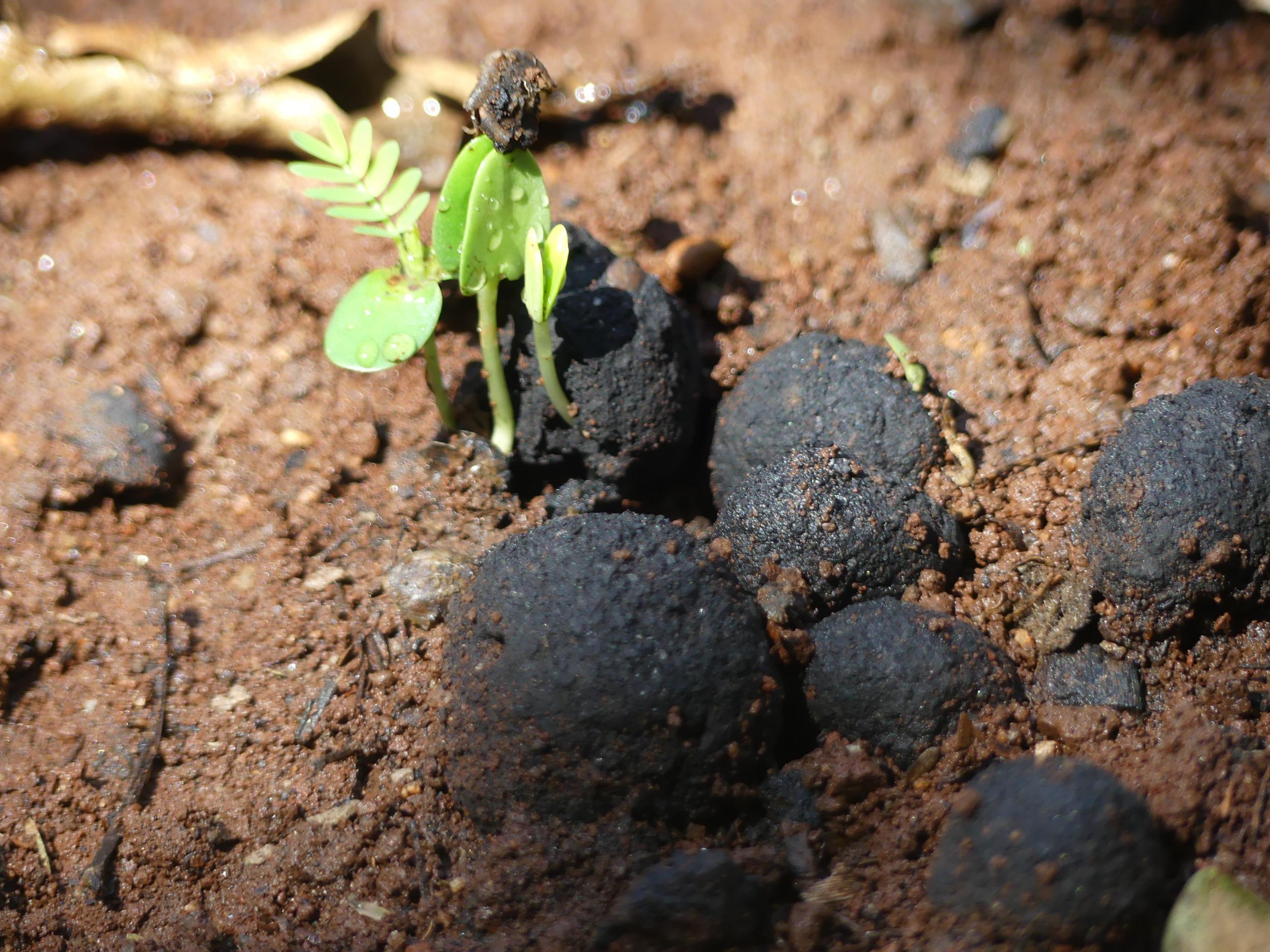How 'seed bombing' could help Kenya's dwindling forests
Tiny seedballs sow new trees in bare land, eliminating the tedious tree-growing process and helping to combat deforestation

Your support helps us to tell the story
From reproductive rights to climate change to Big Tech, The Independent is on the ground when the story is developing. Whether it's investigating the financials of Elon Musk's pro-Trump PAC or producing our latest documentary, 'The A Word', which shines a light on the American women fighting for reproductive rights, we know how important it is to parse out the facts from the messaging.
At such a critical moment in US history, we need reporters on the ground. Your donation allows us to keep sending journalists to speak to both sides of the story.
The Independent is trusted by Americans across the entire political spectrum. And unlike many other quality news outlets, we choose not to lock Americans out of our reporting and analysis with paywalls. We believe quality journalism should be available to everyone, paid for by those who can afford it.
Your support makes all the difference.Planting a tree is a long process. Ideally, it starts with sowing a seed that grows into a seedling, digging holes, transplanting and consistent watering. However, an innovative concept popularly known as 'seed bombing' is eliminating the tedious process and making tree planting fun.
Whether it’s tossing seeds from aircrafts, launching them from a catapult or manually distributing them, the versatility of seed bombing is endless.
This tree-planting technique is helping fight deforestation in Kenya was first introduced to the country two years ago by Teddy Kinyanjui.
Kinyanjui, founder of Cookswell jikos, an energy-saving portable, charcoal-burning stove used for cooking, had spent many years researching on the most effective ways for dryland reforestation. But seeing healthy trees that randomly grew alongside Kenyan roads got him questioning his tree-planting method.
Kinyanjui says “I came across many acacia trees along the road during long drives across the country about five years ago. Surprisingly, these trees that were not planted or watered by anybody seemed to be doing better than those planted in the woodlots.”
On researching further, Kinyanjui found out that trees that grew from direct seeding had better chances of survival compared to seedlings due to a better developed root system. For arid areas where charcoal-making trees were mostly grown, direct seeding was also an easier and cheaper option.
“One would not incur the cost of buying a seedling, digging holes and watering,” Kinyanjui says. However, he realised that seeds distributed are prone to predators such as birds and insects.
Two years ago, Kinyanjui in partnership with Elsen Karstad, Director Chardust Limited, an alternative energy company, came up with the idea of encapsulating seeds in charcoal dust to protect them from damage by insects, birds, sunlight and heat. Each seed ball contains one seed coated in a layer of a substance called biochar.
“Charcoal dust is a preferred medium of coating the seeds since it’s porous, thus can allow water and air to pass through. Use of charcoal dust promotes seed to ash cycle and ensures that old trees are used to grow new ones,” explains Kinyanjui. The medium is also rich in minerals that nourish the seed.
Seed balls do not necessarily need to be distributed during rainy seasons as they can remain intact for more than two years. With some great success already behind them, now Kinyanjui and Karstad are working on expanding the production and distribution of seed balls.

This article is reproduced here as part of the Giants Club African Conservation Journalism Fellowships, a programme of the charity Space for Giants and supported by the owner of ESI Media, which includes independent.co.uk. It aims to expand the reach of conservation and environmental journalism in Africa, and bring more African voices into the international conservation debate. Read the original story here
Join our commenting forum
Join thought-provoking conversations, follow other Independent readers and see their replies
Comments